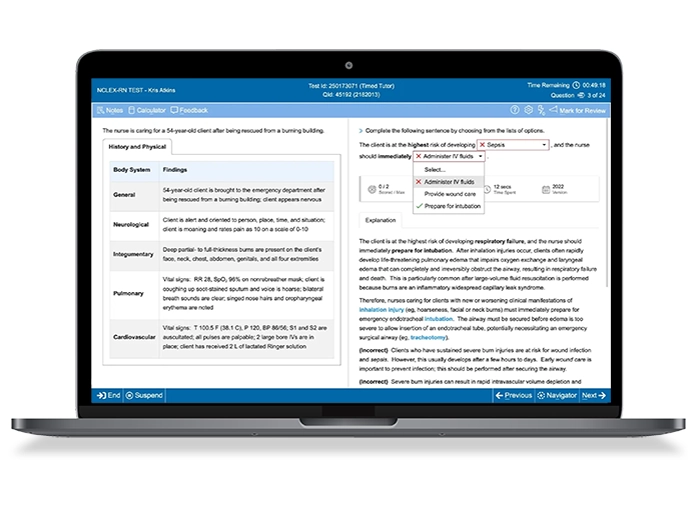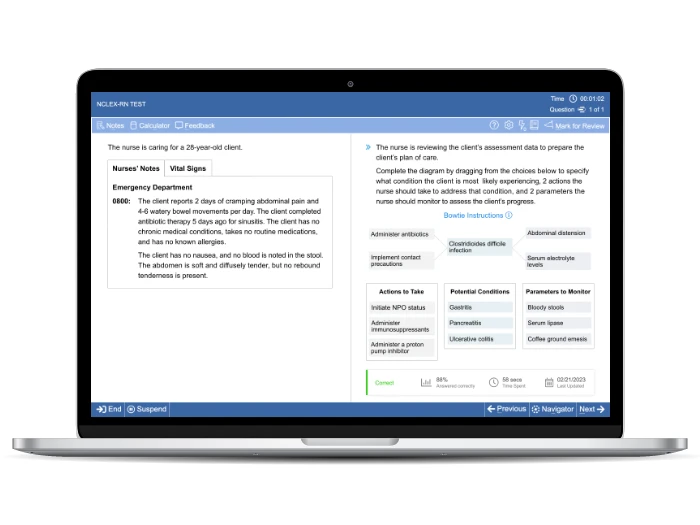Some people enter nursing school knowing which specialty they are most interested in practicing while others struggle to decide which will be the right fit. Part of the joy of entering the field of nursing is the flexibility it provides. Even if you don’t land your dream job right out of school, you can always explore other options after you gain more experience.
If you aren’t sure of the specialty you want to pursue yet, here are four suggestions to guide your search:
1. Consider your personality type and interests/preferences
Your personality and interests will go a long way in finding a specialty that you enjoy and one in which you will find the most success. For example, if you love children and have a natural gift to connect with younger patients, pediatrics or school nursing is a more natural fit than working with older adults. Here are a few things to consider . . .
- Do you enjoy a more structured, detail-oriented environment?
You might enjoy working in the operating room or clinical research.
- Do you enjoy meeting new people and consider yourself to be extroverted?
You might enjoy the emergency department or medical-surgical (med-surg) nursing.
- Do you prefer more solitary work and consider yourself introverted?
You might enjoy forensic nursing or research.
- Do you thrive under pressure and enjoy the demands that pressure brings??
You might enjoy emergency nursing or intensive care/critical care.
2. Consider the setting/typical work environment
Each specialty has its own unique characteristics/style, pace, and culture. As you complete your clinical rotations, be aware of the culture and pace of each environment and ask yourself if you are comfortable within the environment.
For example . . .
Some people love nursing but prefer an environment away from direct patient care. For these individuals, specializing in infection control, case management, or as a legal nurse consultant is more enjoyable.
Other nurses thrive in high-touch roles with patients who have more complex needs. For clinicians like this, the ICU is a natural fit.
And there are always nurses who thrive in a fast-paced, challenging, and rapidly-changing environment. For those who love the action, the emergency department, a trauma intensive care unit, or even flight nursing are environments where they find the most satisfaction.
3. Consider the salary and demand in your area
When choosing a specialty, there are some very practical things to consider such as salary expectations and regional demand.
There are specialties in higher demand in different parts of the country. If you are unwilling to relocate, it is important to research your local community to see where the nursing demand is highest.
In addition to researching specialty demand, doing your due diligence on salary ranges will be a benefit to you as you begin your career. Establishing base salary expectations in advance will rule out certain areas of specialty.
While salary shouldn’t be the only factor in choosing your area of specialty, it is a practical component in your decision-making process.
4. Different specialties may require different levels of education, certification, etc.
Last but not least, your level of education and professional experience will be determining factors in certain specialties. There are particular fields of practice that require more education, certification, or experience than others.
For example, a career in nursing education typically requires a master’s degree. If you want to be an infusion nurse, some facilities require additional education or certification. Requirements for an RN first assistant vary but often include 2 years of perioperative experience and certification.
These are just a few examples — do your research in advance to see if you are qualified for a specialty or how much additional education or certification you will need to acquire.
I hope these suggestions have been helpful as you consider the field of nursing you want to pursue. Don’t put too much pressure on yourself in the process. New experiences, shifting interests, and unexpected opportunities will also be factors that will eventually lead you to a specialty you’ll love and one in which you will find ultimate career satisfaction.

Are you preparing for an upcoming NCLEX® exam? UWorld’s NCLEX Review course includes everything you need to pass the first time! Learn while you practice with our hallmark NCLEX-style questions and detailed rationales. Take a deeper dive on high-yield concepts with our engaging video series, designed to keep you focused on the most important information. Measure your progress with detailed performance reports and regularly assess your NCLEX readiness with our statistically-validated assessments. The results? A smarter way to pass the NCLEX!





